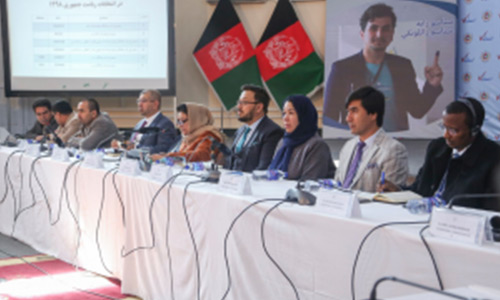Afghanistan’s incumbent president, Mohammad Ashraf Ghani, has been declared the winner in September’s election, based on preliminary results. However, other presidential nominees and political parties charged that the election had been rigged.
Afghan people paid heavy sacrifices for achieving democracy and casting their ballots. They were targeted by the Taliban militants on several important occasions, including registering for voting. Eighty-five civilians were killed and more than 370 wounded in militant attacks and violence on the day of the election, the United Nations said last month. The Taliban fighters, who are against democratic principles and urge for the establishment of “Islamic Emirate”, warned that they would target the voters on Election Day. But people were not deterred by the threat.
Despite this fact, the voter turnout has been incredibly low in the wake of the ongoing trust deficit between state and nation. A large number of people believed that the election would not be conducted in a free and transparent way and would be filled with fraud. Meanwhile, they claimed that their ballots would not bring about a significant change in the country as ever before and law-breaking as well as violation of their rights and freedoms would continue. In the past presidential elections, the voter turnout had been really high and Afghan men and women believed that their ballots would safeguard them against bullets. But it did not happen and their pain and suffering continued as a result of violence, corruption, nepotism, bribery, etc.
The total turnout in the presidential election was more than 1.8 million with President Ghani securing 50.64 percent – enough to win in the first round of voting – beating his main challenger, Dr. Abdullah Abdullah, who shares power with Ghani in a unity government.
Nonetheless, Abdullah’s office said in a statement that he did not accept the preliminary results published on Sunday and that the commission had failed to tackle election fraud.
The head of the Independent Election Commission (IEC), Hawa Alam Nuristani, told a news conference that the outcome could change after final results and was still subject to a review by the Independent Election Complaints’ Commission (IECC)
If a review showed Ghani’s vote falling below 50 percent and no other candidate with a majority, a second round of voting would be held, she said.
Abdullah’s reaction towards the result echoes 2014, when both Ghani and Abdullah alleged massive fraud by the other, which led to power-sharing and establishment of the unity government with the US mediation.
It is feared that the political tension between presidential elections may split the country further along tribal and ethnic lines. Abdullah states that he would not accept the result for massive fraud and Ghani is unlikely to accept another power-sharing deal with Abdullah. Before the result was announced, Abdullah’s supporters launched demonstrations in different provinces airing their concerns about election fraud.
Last month, the IEC began recounting thousands of votes due to what it described as discrepancies in its system. Abdullah’s side objected to the recount and called it an attempt to add more votes in favor of Ghani. The IEC dismissed those allegations.
It is worth mentioning that Afghan people are highly frustrated with political tension and the number of the participants in demonstrations were very low. It seems that Afghan people have reached to a political maturity, which is not comparable to a decade ago, and believe that political figures mostly use them as pawns to reach their self-interests. With this in mind, the heavyweight political figures failed to mobilize public support for themselves despite making efforts in various provinces. In short, it does not matter for the public who wins the election, but the winner is urged to execute his commitment and honesty to render more valuable services for the nation, try to safeguard the public rights and freedoms, and enforce law and regulation more strictly.
Political elites and all presidential candidates have to respect the rule of law and avoid tension. They should urge their proponents not to break the law simply to support a candidate after the result announcement. To proceed on the basis of law, the candidates should file their petition against the fraud in the IECC, which has to tackle it legally.
It is time for political figures and parties to bury their personal differences and respect the rule of law. It is evident that election was not conducted in a free and transparent way, but engaging in more tension will simply compound the challenges. Meanwhile, Afghans are also frustrated with the differences of political figures and no more trust them.
It is hoped that the future government will re-gain the public trust through enforcing the law properly, adhering to peace talks to bring in peace and stability, and safeguarding the public rights and freedoms.
Home » Opinion » Controversy over Election Results
Controversy over Election Results
| Hujjatullah Zia

